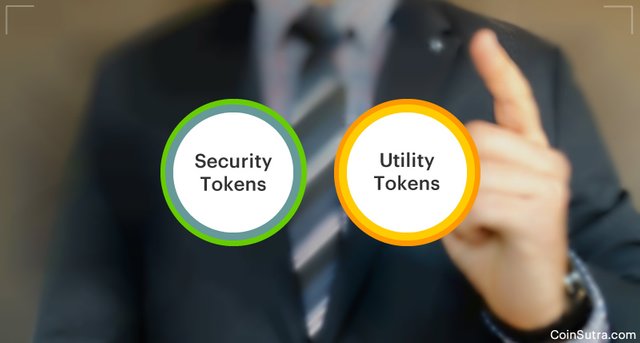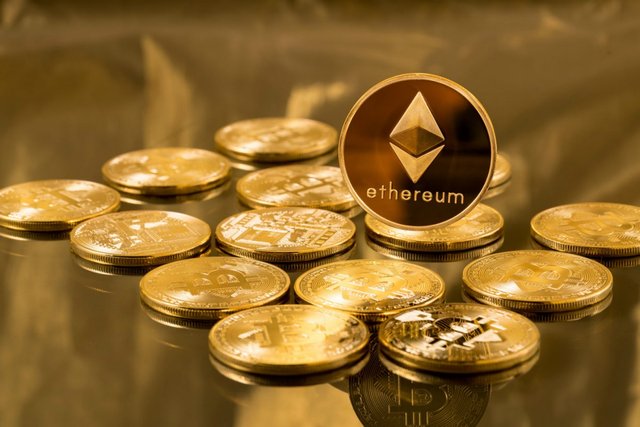

Let's talk about Utility tokens and Security assets and then look at the differences and the similarities between these two.

Security assets (Coins/tokens).
Recently, there's been a lot of hype around security tokens, with several of them popping up on the blockchain. However, very few people know what they are and how they differ from utility assets.
Basically, an asset is deemed a security if the company or project behind that token sells it to investors with the promise of profit. Investors who hold such tokens are promised a share or equity in the company based on the amount of stake they have.

Armed with this knowledge, one can say that all stocks are security tokens because they give holders legal rights to the companies, their products and their services. They may or may not have any use in the company's platform. Hence, they might simply be there to represent value.
Securities are compliant to the local state laws where the company is being operated from. Hence, there is a lot of regulation to go with it, as well as legal protection for its holders.

What makes a security token a security token?
There are a couple of conditions that these tokens must fulfil in order to be called security tokens. This is called the Howey test (propounded in 1946 by the Supreme court on a case involving the SEC and A businessman, Mr Howey). these conditions are:
- It is considered an investment.
- The investment is in a common enterprise (Physical enterprises that invest money in projects).
- There is an expectation/promise of profit for the investors.
Most ICOs in the Crypto space qualify as securities because they offer tokens for money. However, because they do not meet all of the requirements in the Howey test, they are passed as utilities.

Utility assets (coins/tokens)
Utility assets, on the other hand, are different from Securities because holding these tokens do not give you the legal right to the company or platform offering them. Even though they are offered for money most times, there is no promise of profit by anyone. Hence they are more risky to take part in.
Utilities are simply seen as gateway tokens to a product or a service. "Hey, do you want to use our app or get access to our premium services? then get our tokens" These companies do not clearly state that these tokens should represent investments.

Utility assets as the name implies, must have case uses within the platforms they are developed in. For example, ETH is a utility coin because, on the Ethereum platform, it is used to pay gas fees for transactions. Steem is a utility token because holders can use them to allocate value to worthy contents on the platform. etc...
Utility assets hardly come under any state or local regulatory laws since they're just considered tokens for use. Hence they are easy to get listed on exchanges because they do not need any approval from legal authorities. They are easily seen as virtual tokens or points used within an ecosystem. These may have value or not in the future and no one is promised profits. Everything is speculative.
Well, there you go. Now you know the differences between a utility asset and security assets. In your next investment decision, I hope this knowledge serves as a guide. Thank you for reading.
References.
Blockgeeks -- Littleboy, Steem
This article has been cross-posted on Whaleshares
Blockgeeks -- Littleboy, Steem
Interesting read.
Thank you for sharing this vital information.
So stewed, lol
Now I know I have utility assets scattered everywhere.
Downvoting a post can decrease pending rewards and make it less visible. Common reasons:
Submit
Lol. So stewed.. That's the new thing yeah?
Thanks for reading, dear.
Downvoting a post can decrease pending rewards and make it less visible. Common reasons:
Submit
This is a legitimate distinction and bit of info for those learning about the space. I have seen a couple conversations on this lately because ot the Market Cap of some of the Tether-like coins puffing up as the correction happened.
Great stuff!
Downvoting a post can decrease pending rewards and make it less visible. Common reasons:
Submit
Glad you found it useful. TBH, I recently got to know about the difference. I'm sure there are several others who would learn a thing or two here.
Downvoting a post can decrease pending rewards and make it less visible. Common reasons:
Submit
Brief and concise.... Good job bro
Downvoting a post can decrease pending rewards and make it less visible. Common reasons:
Submit
Thanks man... Glad you found it useful. I tried to keep it short and simple this time.
I know, I deserve a medal for that, given how lengthy and almost unnecessary some of my rants on here are. 🤓
Downvoting a post can decrease pending rewards and make it less visible. Common reasons:
Submit
Cleared now
Thanks sir for this
Downvoting a post can decrease pending rewards and make it less visible. Common reasons:
Submit
Gotta love it, bro... 🤗
Downvoting a post can decrease pending rewards and make it less visible. Common reasons:
Submit
I just got schooled...
Lots of sense flying about in your article.
Downvoting a post can decrease pending rewards and make it less visible. Common reasons:
Submit
Thanks, dear...
Downvoting a post can decrease pending rewards and make it less visible. Common reasons:
Submit
Awesome article, BUT one thing I just cannot understand is how can a person PROMISE profit, I understand the token itself etc, but the only way he can actually select the coin value is selling every token himself AND disabling trading of the coin - but then.. what would the coin actually be useful for..
Maybe I'm just mixing things up, maybe not, just a thought I got.
Downvoting a post can decrease pending rewards and make it less visible. Common reasons:
Submit
Not exactly "PROMISE" in the sense of the word.. However, In some investment firms, they advertise viable returns for their individual investors with every project they choose to invest in. For example:
"Our team of investors are professionals and they only invest in legit projects and ventures. Invest with is today and secure a great future for your family... Blah blah blah"
That is a guarantee of profit. That's security.
Downvoting a post can decrease pending rewards and make it less visible. Common reasons:
Submit
My recent experience with Speedway Gas Station's on https://speedway-gas-station.pissedconsumer.com/customer-service.html left me frustrated and dissatisfied. The response time was incredibly slow, and the communication lacked the clarity and effectiveness I expected. In the competitive realm of gas stations and convenience stores, efficient customer service is crucial. I hope Speedway takes note of customer feedback to improve and streamline their customer service processes.
Downvoting a post can decrease pending rewards and make it less visible. Common reasons:
Submit